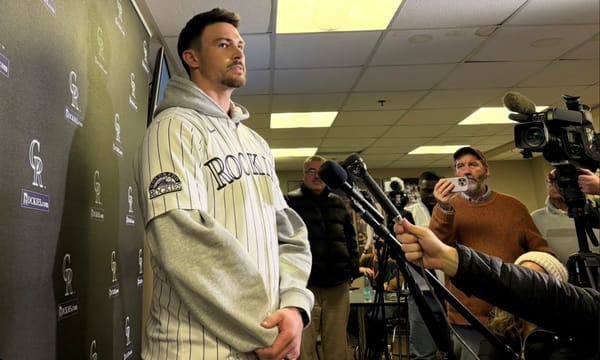[Not Baseball] A Review of Mike Campbell’s “Heartbreaker: A Memoir”
It’s the best thing I’ve read — and listened to — in some time.
![[Not Baseball] A Review of Mike Campbell’s “Heartbreaker: A Memoir”](/content/images/size/w1200/2025/07/IMG_4448.webp)
Generally, Rockies Pitch is a newsletter about the Colorado Rockies. However, on occasion, I find I’m interested in writing about other things. When that’s the case, I’ve decided I’ll publish those pieces as blog posts on the Rockies Pitch website, and not email them as a newsletter.
★ ★ ★
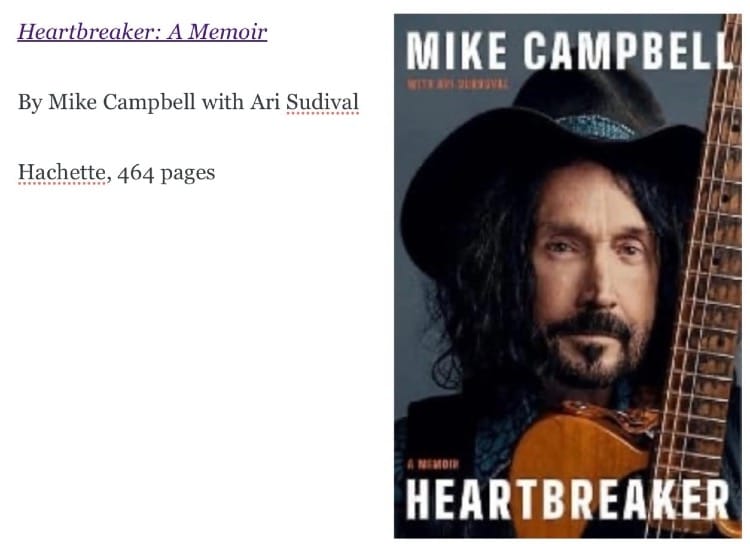
I should start by telling you what I look for in an audiobook — because my criteria are different for an audiobook than they are a printed text.
For about five years, my colleague Rob Stothart and I coordinated a writers series at the college where we teach. Rob retired, and I didn’t want to continue the series without him, but it made an indelible impression on me as a reader. We had a modest budget, but we brought in good writers — some you’ve probably heard of and others you haven’t. But we wanted to bring to campus writers who wanted to work with students and talk about writing.
I’d heard writers read before when I was in college and graduate school, but the Writers Series was a whole other thing. We had meals with those writers and just general conversations, and when they did their reading, the experience was just different somehow, more honest.
A few years ago, I found myself missing listening to writers read their work, which is when I turned to audiobooks. Jeff Tweedy’s memoir Let’s Go (So We Can Get Back) was my entry to the form, and since then I’ve been hooked.
I’ve got one criteria: The author needs to read their work. If they bring in someone else to do the reading (looking at you, Chrissie Hynde), I’m not interested. I want to hear the author telling their story, not a narrator interpreting it.
Over the past few years, I’ve listened to a lot of musicians’ memoirs. (The reasoning behind that is something for another day.) Generally, I like a book that is six-to-eight hours long. Anything more than that is a commitment.
And so when I stumbled onto Mike Campbell’s Heartbreaker: A Memoir and found it weighed in at 14+ hours, it gave me pause. Still I downloaded the sample and started.
His first sentence seemed rough — clearly, he was not a practiced reader; by the second sentence, I was intrigued; and by the third, I’d downloaded the entire book. Campbell’s voice was honest and compelling.
And then I got the the last paragraph of the three-page introduction:
As the band left the stage, Tom was down front waving to the crowd, signing some autographs. Backstage, I sat down and caught my breath, but I wanted to catch him before he left. I wanted to say goodbye. I wanted to tell him how much I loved him, and how proud I am of what we created together, and how grateful I am for everything we went through, even the hard times. But I missed him somehow. I turned around and he was gone.
I’ll tell you instead.
I was all in.
Tom Petty and the Heartbreakers’ music is very familiar — it was everywhere as I was growing up. I liked it — I had their Greatest Hits album — but I was never a devotee like I was Bruce Springsteen or the Drive-by Truckers or even The Cure.
Heartbreaker made me regret not paying better attention when I had the chance and catching them live when I could.
Campbell’s focus is necessarily himself, growing up poor in Jacksonville, Florida, with two siblings and his divorced mother, “poor as ragweed and pretty as Ava Gardner.” His style is spare, straightforward, and occasionally laugh-out-loud funny. He’s a quiet, shy kid but clearly bright as he tries to find where he fits in, but he knows he loves music.
As Campbell writes, “All I had was two shirts and one pair of jeans and one pair of old sneakers. But all I wanted was a guitar. A guitar. A guitar. A guitar. It was all I thought about. I had no idea why I wanted one so badly, but it was the Beatles, of course.”
He gets his first guitar on his 16th birthday, “a beat-up little Harmony acoustic, with f-holes like a violin, and nicks and gouges pocking its faded brown-and-yellow sunburst finish” along with a Mel Bay chord book, and Campbell is a diligent student. A few months later, he begs his father, divorced from his mother and stationed with the Air Force in Okinawa, to buy him an electric guitar. Eventually, he gets a Guyatone LG-130T in the mail.
There are angels along the way: “a thin-faced greaser” who appears on the stoop of the apartment complex a few months after Campbell gets the guitar and shows him how to play “White Lightening”; Miss Collier, a high school guidance counselor who helps him get to the University of Florida (and Tom Petty); a “wholesome, wide-eyed guy” in South Carolina who gives him a sunburst Gibson acoustic. “The Lord wants me to give it to you,” he says. Campbell goes on to make sure millions of people hear that guitar.
Campbell is, by his own admission, painfully shy, but he spends most of the book describing his ongoing relationship with Tom Petty and his own growth as an artist and musician. That he loves his wife, Marcie, and their three children dearly is always apparent, but the focus here is the music and the band.
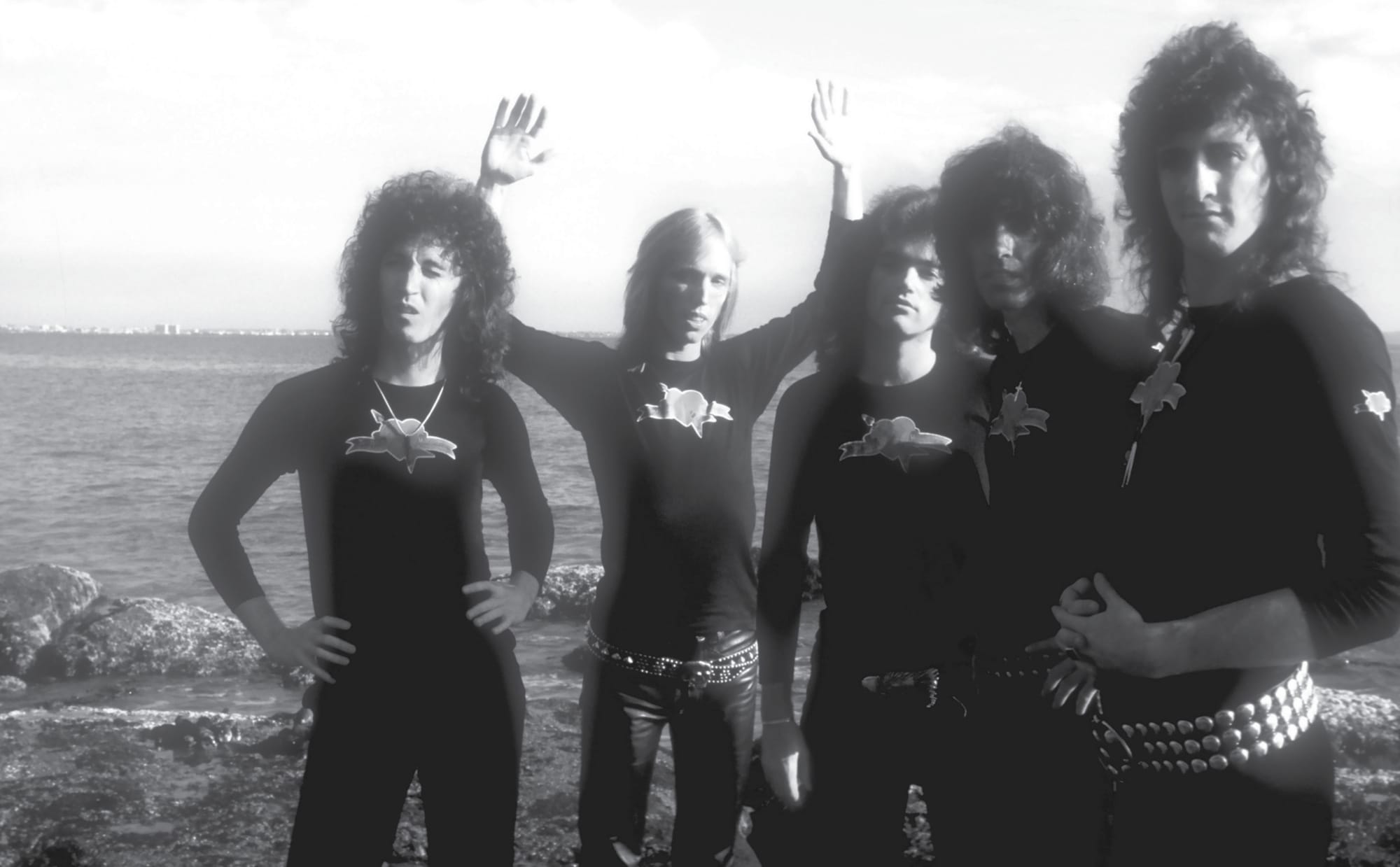
He remembers what would become The Heartbreakers beginning as Mudcrutch playing shows in Gainesville, Florida, and finally making the jump to Los Angeles and the big time.
His guiding principle through it all, though, is gratitude. Campbell writes,
To me, being grateful was the key to everything. It was what made it possible for me to get through the hardest times in the band. Simple gratitude. Simple thanks for the blessings I had been given. For the life. For the music. For the crew. For the fans.
Petty emerges as an enigmatic figure: essential to the band, yet necessarily separate from it. But Campbell never questions his commitment to Petty or the music.
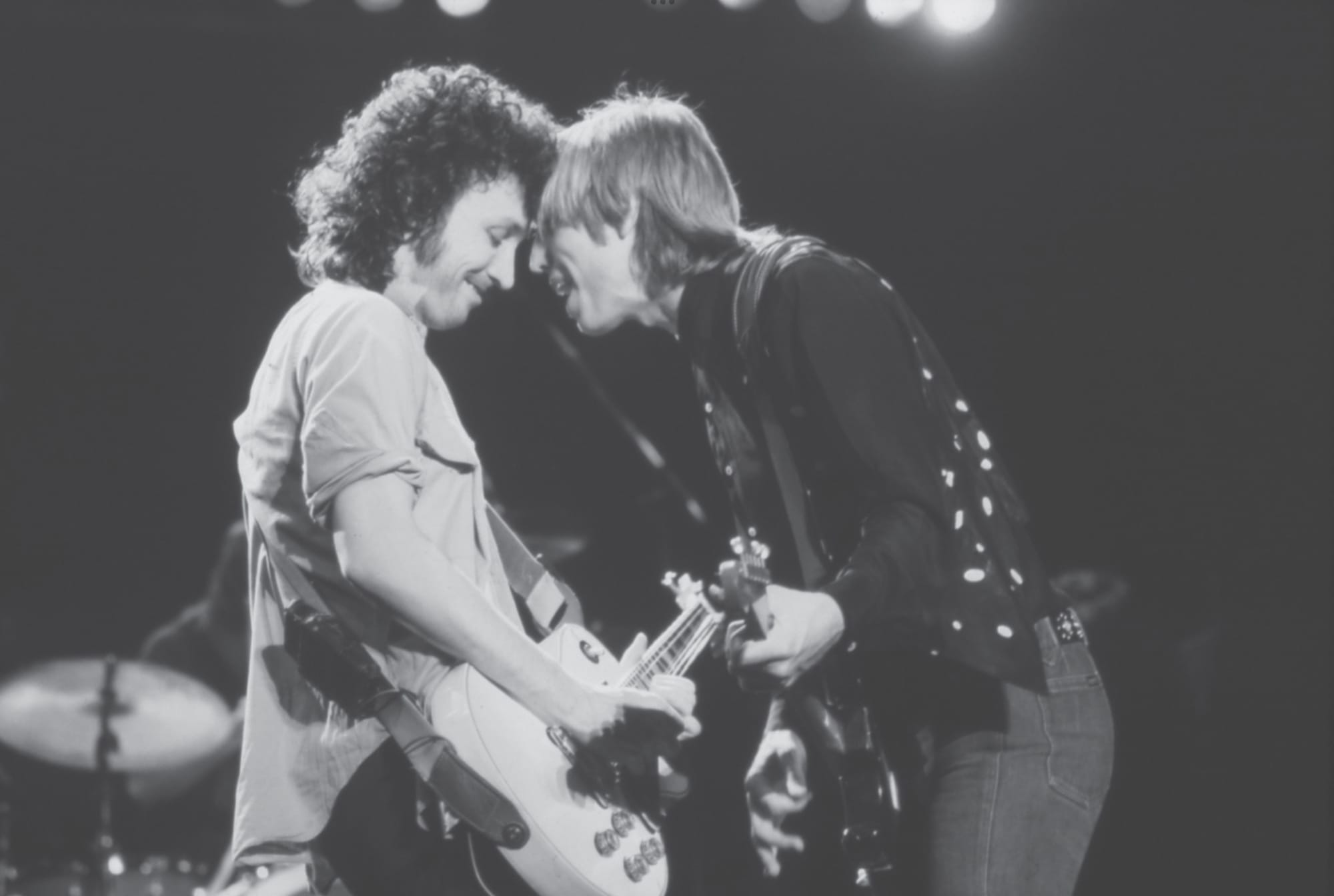
As for the Heartbreakers, they experience the same changes as any organization: there are power struggles; members come and go; and there are problems with addiction and finances. But despite all that, Tom Petty and the Heartbreakers stayed together until Petty’s death in 2017, cementing their legacy as one of America’s great rock and roll bands.
Heartbreaker is not just about his relationship to Petty. Campbell, too, shows his own evolution as a musician as he meets fellow musicians and starts new projects. (If nothing else, it’s worth listening to for his description of working with Don Henley on “Boys of Summer.”) For example, George Harrison makes an appearance as do Bob Dylan, Joe Strummer, and the wonderful Stevie Nicks, who, literally, helps Campbell find his voice.
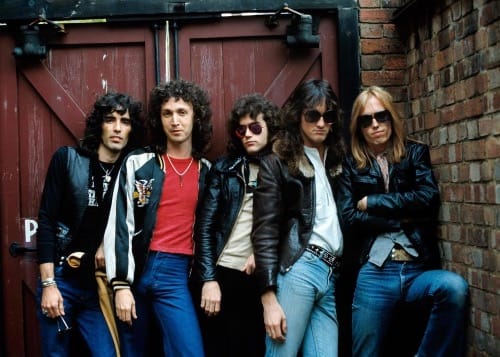
When a book really gets my attention, I keep reading about the subject, which is where I am now. I downloaded the ebook of Heartbreaker and found myself crying again as Campbell attempted to express his desolation at losing Petty to addiction. I watched Peter Bogdonavich’s four-hour film biography, Running Down a Dream, I’m reading Warren Zanes’ Petty biography and will follow that up with some interviews and whatever else I can find. Also, The Heartbreakers’ Beach Party is on my list, and I’ve got to find a copy of Across the Borderline.
And, of course, there’s the music — so much wonderful music, some that I hadn’t paid attention to in years and some that I never heard at all. (I’ve begun prowling for some bootlegs of those Bob Dylan and the Heartbreakers shows.)
Heartbreaker does what the best books do: They help us revisit something we thought we knew as we bring who we are now to a topic we thought we knew then.
These days, Campbell has a different band, The Dirty Knobs, and he’s singing lead vocals — something that was extraordinarily hard for him to do — and going on tour. As he likes to point out, he signed a record contract when he was 70.
And he still plays some Heartbreaker songs. He plays them because he loves the music and wants to keep it alive. He plays them for the fans so that they can all mourn and celebrate together. And he plays them for Tom Petty because that’s the kind of person Mike Campbell is.
I’ve spent most of my summer with Mike Campbell, and it’s been amazing. I hope you’ll give him some time, too.
★ ★ ★
I’ll leave you with three songs.
And this:
And here’s The Dirty Knobs:
Rockies Pitch is a newsletter that (mostly) focuses on Colorado Rockies baseball. Find me on Bluesky at @ReneeDechert.com or send an email to Renee@RockiesPitch.com.




